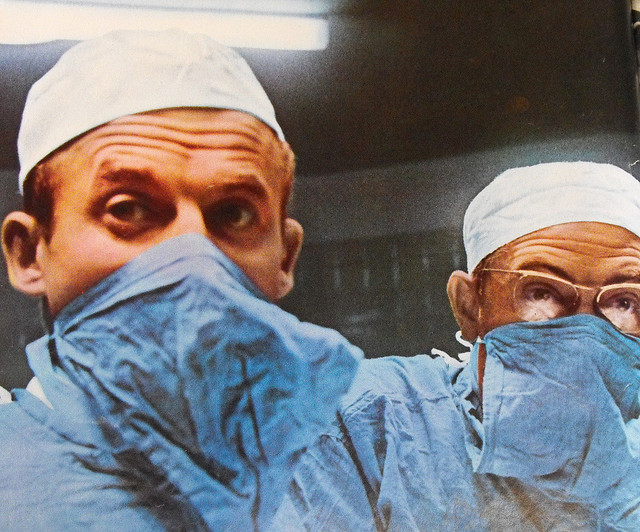If you’re over 50 you’ve likely encountered both good and bad doctors. As with every other area of human endeavor, physicians vary in their skills and abilities. And unlike the portrait the medical profession sometimes likes to paint, doctors are not created equal by their training, in their dedication, nor certainly in their bedside manner.
That variability was on display in the release on July 14 of new research findings on the complication rates of 17,000 surgeons treating 2.3 million Medicare patients undergoing one of eight elective (and generally low-risk) surgical procedures from 2009 to 2013. The research was done by ProPublica, an investigative journalism organization based in New York City, using reams of detailed Medicare data on individual physicians that was, until recently, unavailable.
The report has generated a lively debate on ProPublica’s web site. The article includes comments and dialogue at end. There is also a background/methods paper, and a searchable database where you can look up surgeons by name. It’s terrific stuff if you want to become aware of the issues at stake and how to search for a surgeon.
The researchers looked at death rates and hospital readmissions within 30 days of discharge after the surgery, with tight focus on complications that were clearly due to surgical complications or poor surgical results and not other causes. They also adjusted for severity of illness, age and other factors so that hospitals and surgeons seeing sicker patients were not penalized. Among the procedures evaluated were laparoscopic cholecystectomy (gall bladder removal); radical prostatectomy (prostate removal); spinal fusion; hip replacement; and knee replacement.
The good news: Overall, complication rates were low; none of the procedures had an average death or readmission rate over 5 percent, and there were very few deaths caused directly by the surgeries. The bad news: rates of complications varied widely, even within the same hospital or health system. The best-performing surgeons had rates of harm about 50 percent less than average while the worst performers had risk-adjusted rates as high as three times the average. A statistical analysis of the data found that surgeon performance accounted for more of the variability between hospitals than hospital-wide performance on a given procedure.
The findings come as the federal government, private insurers and others are ramping up their scrutiny of physician quality-of-care and results—and they are beginning to peg payment to performance. Congress passed legislation in April, for example, created a new physician payment program for Medicare that will launch in 2019. It will require every physician to either be part of a health system that measure performance and quality or care, or report their quality of care to Medicare.
Meantime, expect to see more findings from the Medicare physician database in the next few years.
And, keep in mind that, to the extent you can, you should do as much homework as possible on your doctors and hospitals. A lot of information is still in development, but take a look at the available information. Click here to find out why you should choose your hospital emergency room carefully, here to learn about how to choose a doctor, and here for some insights into different hospital ratings.










